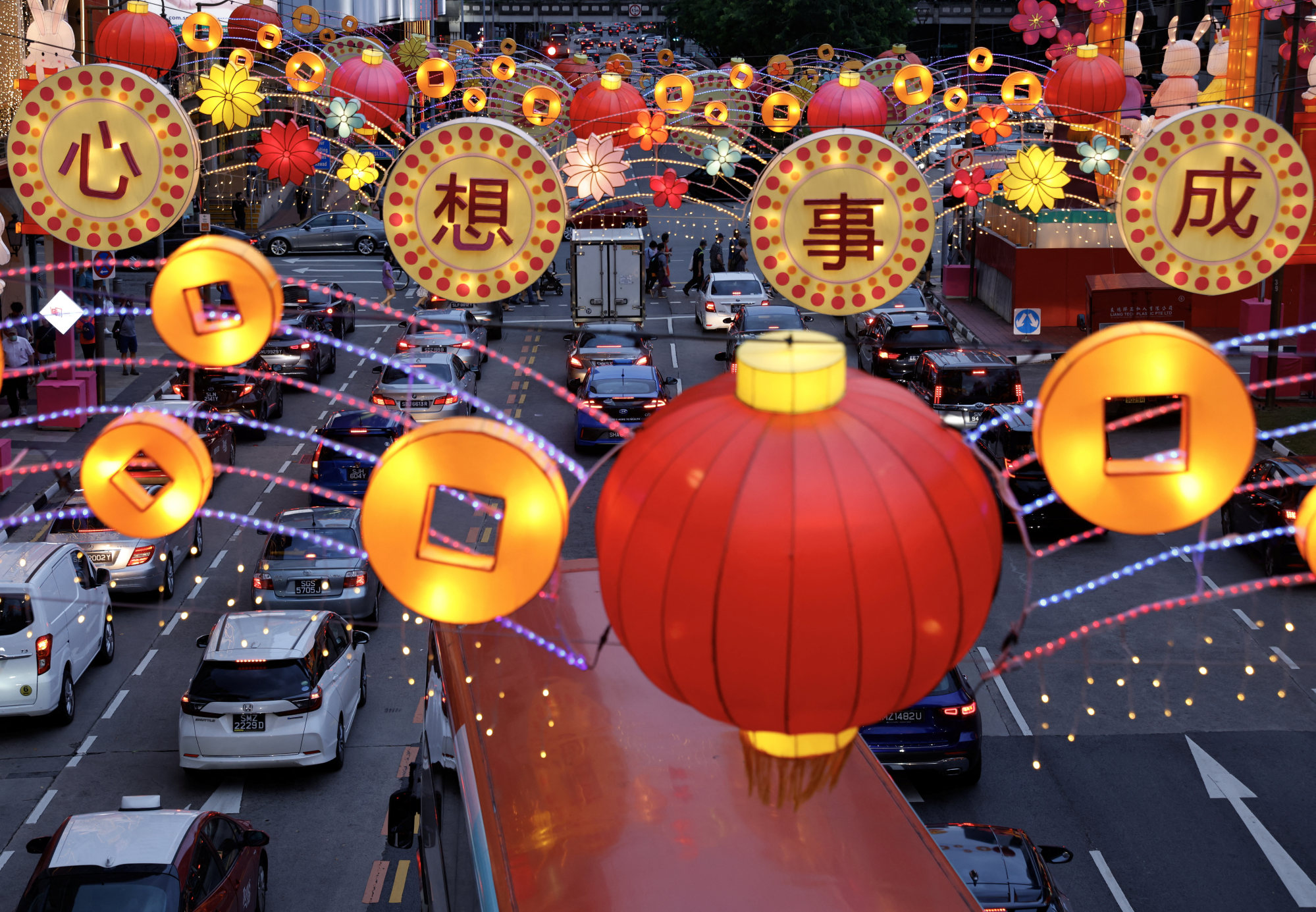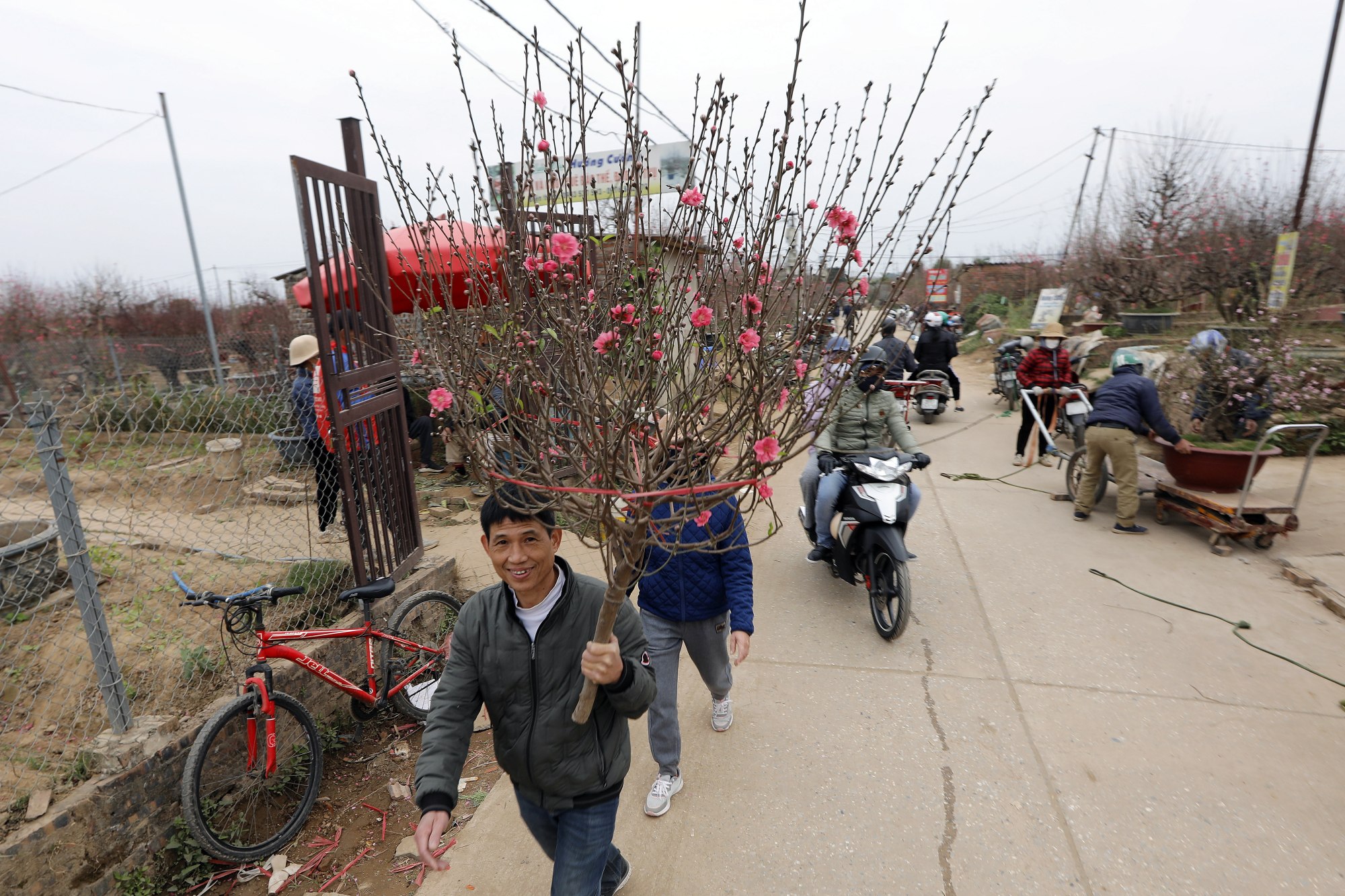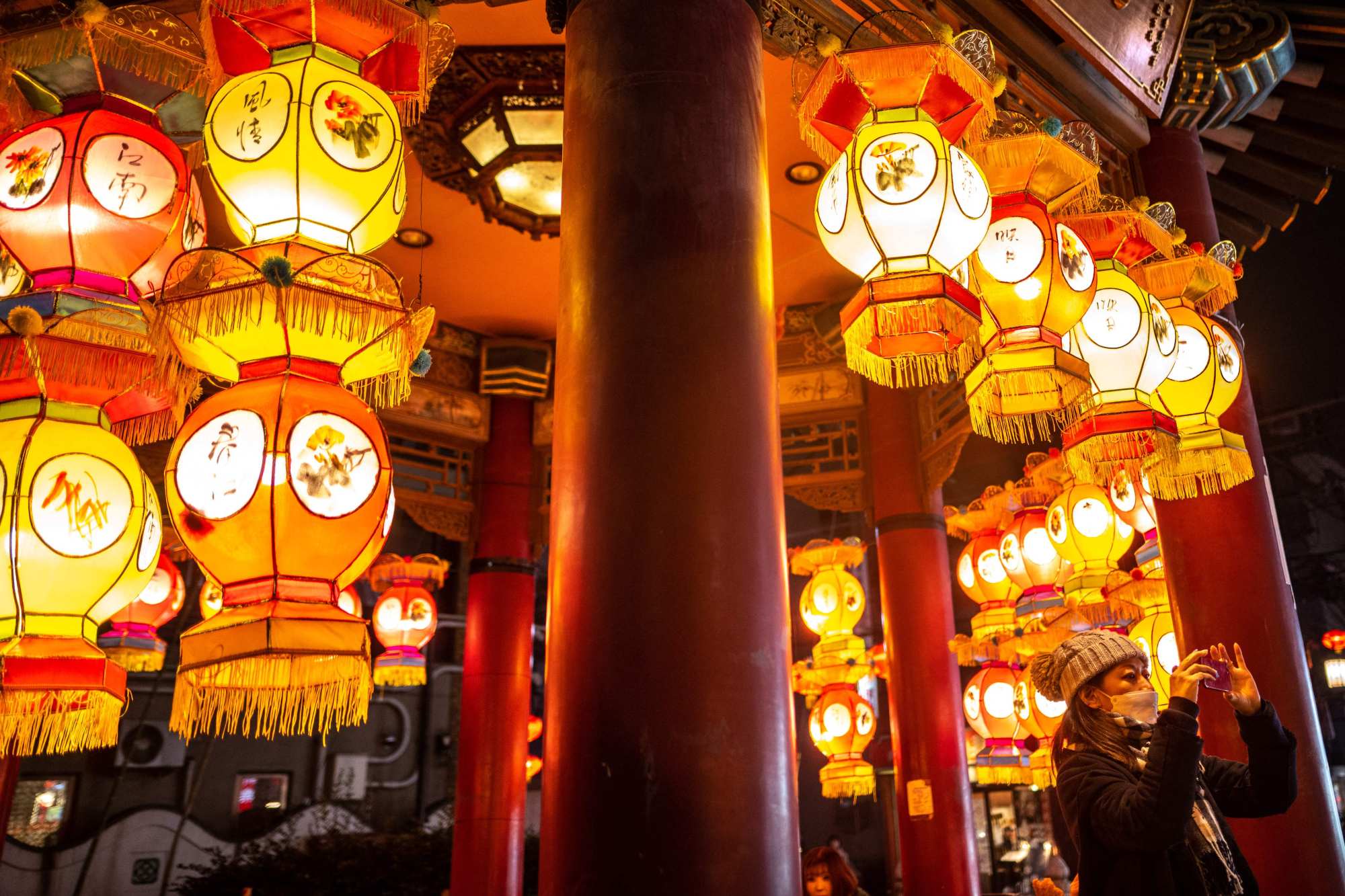
Asia’s Chinese diaspora celebrates first post-Covid Lunar New Year even as inflation bites
- Covid-19 remains a concern for some, even as many people spare no expense to celebrate while others mull cost-cutting measures for festivities
- Retailers expect a boost as consumers snap up pre-Lunar New Year purchases even as some are caught between raising prices and absorbing them
Koh, a 45-year-old behavioural therapist, expects over 20 people at his home for the traditional lo hei salad toss to usher in good fortune and prosperity, before tucking into a scrumptious spread of premium prawn rolls and steamboat.
“Lunar New Year is pretty much the same for me [every year] but I have two elderly relatives staying with me, they will be happy to see relatives coming to visit them,” he told This Week in Asia.

Festivities had been largely muted over the past two years, as movement restrictions and lockdowns severely crimped social gatherings and economic activity amid efforts to arrest the rapid spread of the Covid-19 pandemic.
As Covid-19 crashes Lunar New Year party, Asians find other ways to celebrate
But when it comes to celebrating the Lunar New Year, Foo does not intend to hold back.
“This is the first Lunar New Year in years and last year we did not get to do a lot of celebrations, so this year we started early. Although things are more expensive, we still went ahead to have a big reunion dinner,” he said.
Tet spike
Nguyen Hoang Viet, who runs an online coffee bean business, said that Tet-related inflation has forced him to choose between raising his prices at the expense of his small but growing customer base, or to absorb losses.

“I don’t like the practice of increasing prices constantly or every year without any ‘real’ value other than the reason that it is Tet as it indirectly causes inflation. Paying more for the same product also indirectly lowers the value of money,” the 23-year-old entrepreneur said.
Businesses in Vietnam are also expected to hand out Tet bonuses to staff, a cultural practice that tends to split public opinion.
A Japanese-owned factory was roundly criticised after it gave its workers bonuses of 50,000-100,000 Vietnamese dong (less than US$5), according to a report by newspaper VNExpress, far below typical rates that run into millions of Vietnamese dong.
Vietnam’s unemployment rate remained low at 2.3 per cent in November, according to government data, but slowdowns in factory production have resulted in 42,000 people losing their jobs while another 500,000 were underemployed as of December 7.
The biggest event will be the two-week Nagasaki Lantern Festival, where over 15,000 lanterns will be put up across the city to mark the turn of the lunar calendar. Similar celebrations will also be held in Yokohama and Kobe.

Covid-19’s shadow
Retail sales are also expected to receive a much needed bump amid the rush to buy everything from food to decorations and new clothes, according to local news reports, despite higher living costs from inflation over the past year.

But Covid-19 remains a concern for some, who prefer to keep things small and intimate even after the government did away with rules limiting public gatherings.
“The past year was generally OK, but I have been receiving news of friends and relatives having health problems so this worries me a bit. I am still careful when going out,” said Lim Seng Haw, 44, a mural artist living in Sabah’s capital city of Kota Kinabalu on Malaysian Borneo.
A challenging outlook, however, should not stop families from upholding tradition, especially if it is only done once a year, according to Penang native Aaron Oon.
Malaysian-Chinese see red over Lunar New Year reunion dinner policy flip-flop
Oon, whose family has relocated to the nation’s capital of Kuala Lumpur, will not hold a big celebration in light of a recent death in the family but will maintain cultural practices during the holiday.
“No matter how bad the year has been, Lunar New Year is one time to spend money, be optimistic and celebrate. It’s just a few days to not have to think of bad things,” the 39-year-old IT manager said.
“Tradition is something we need to pass to our next generation.”




